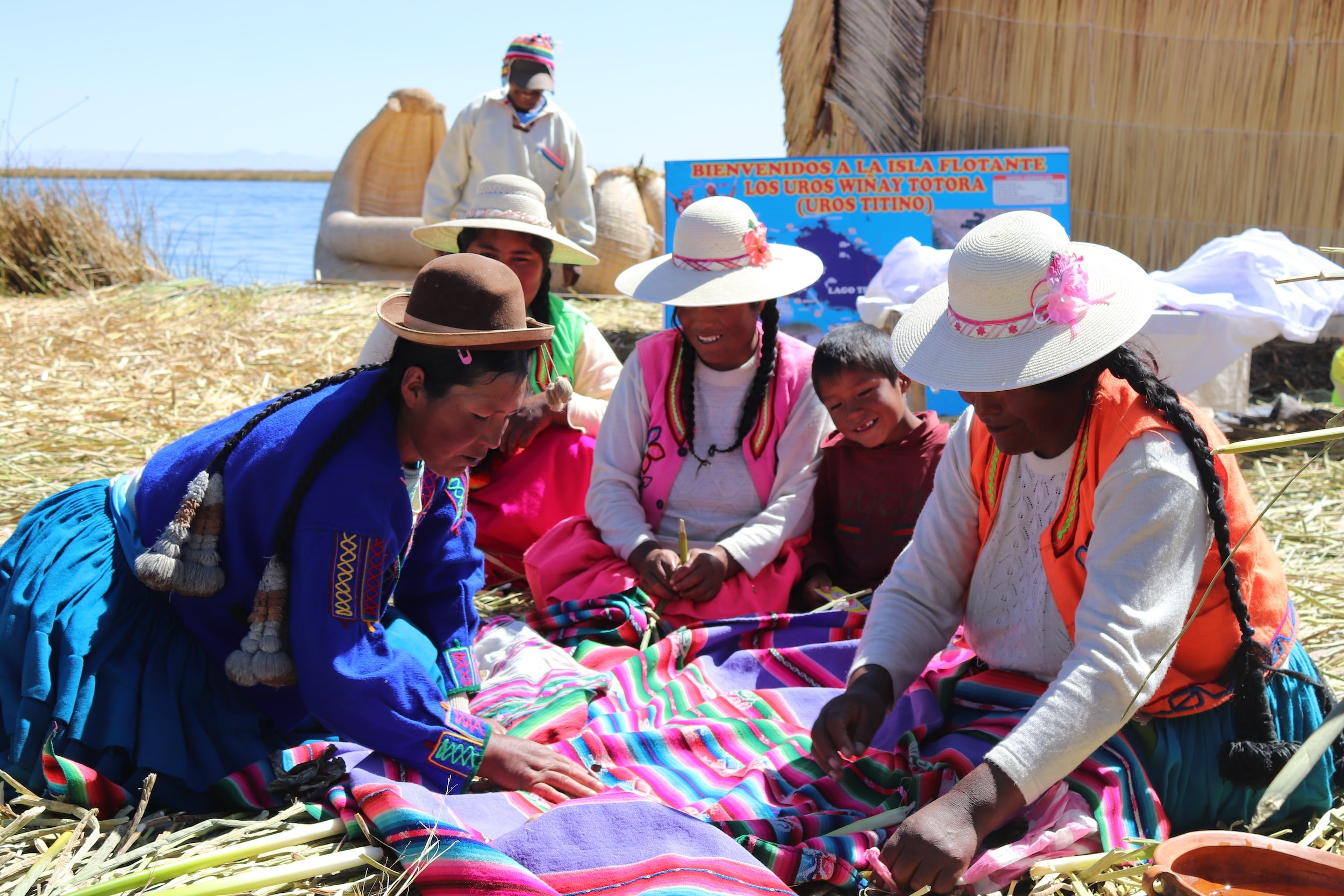Ethical Issues and Consent in Research with Indigenous Peoples
by Janet Salmons, Research Community Manager for SAGE Methodspace
Dr. Salmons is the author of Doing Qualitative Research Online, which focuses on ethical research and writing, and What Kind of Researcher Are You? which focuses on researcher integrity.
The broad topic of research ethics is the Methodspace focus for August 2022, and in September we will look at cultural dimensions of research. This post crosses both topics, with research examples in open-access articles about ethical, respectful, research with Indigenous people and communities. You can find a collection about Indigenous methods from the Methodspace archives with posts, articles, recorded webinars and interviews here. Also see the well-respected handbook on methodologies from Bagele Chalisa. With the code MSPACEQ322 you receive a 20% discount when you order research books from SAGE. Valid through September 30.
Datta, R. (2018). Decolonizing both researcher and research and its effectiveness in Indigenous research. Research Ethics, 14(2), 1–24. https://doi.org/10.1177/1747016117733296
Abstract. How does one decolonize and reclaim the meanings of research and researcher, particularly in the context of Western research? Indigenous communities have long experienced oppression by Western researchers. Is it possible to build a collaborative research knowledge that is culturally appropriate, respectful, honoring, and careful of the Indigenous community? What are the challenges in Western research, researchers, and Western university methodology research training? How have ‘studies’ – critical anti-racist theory and practice, cross-cultural research methodology, critical perspectives on environmental justice, and land-based education – been incorporated into the university to disallow dissent? What can be done against this disallowance? According to Eve Tuck and K Wayne Yang’s (2012) suggestion, this article did not use the concept of decolonization as a substitute for ‘human rights’ or ‘social justice’, but as a demand of an Indigenous framework and a centering of Indigenous land, Indigenous sovereignty and Indigenous ways of thinking. This article discusses why both research and researcher increasingly require decolonization so that research can create a positive impact on the participants’ community, and conduct research ethically. This article is my personal decolonization and reclaiming story from 15 years of teaching, research and service activities with various Indigenous communities in various parts of the world. It presents a number of case studies of an intervention research project to exemplify the challenges in Western research training, and how decolonizing research training attempts to not only reclaim participants’ rights in the research but also to empower the researcher. I conclude by arguing that decolonizing research training creates more empathetic educators and researchers, transforming us for participants, and demonstrating how we can take responsibility for our research.
Davison, C. M., Brown, M., & Moffitt, P. (2006). Student Researchers Negotiating Consent in Northern Aboriginal Communities. International Journal of Qualitative Methods, 28–39. https://doi.org/10.1177/160940690600500207
Abstract. In this article, the authors discuss what students are doing to reconcile the differences between institutional ethical review standards and the reality of community-based, qualitative research, particularly in northern Canada. They examine the experiences of 12 students who are currently undertaking or have recently completed qualitative research in the North. Students raised concerns about what informed consent really mean; the contentiousness of obtaining written consent, and modified consent forms and the flexibility of research ethics board (REB) standards. The authors demonstrate that significant judgment is required in the introduction of ethics procedures in northern Canadian research. More work is needed to guide novice researchers and help build their agency for making ethical judgments in the field.
Ellis, J. B., & Earley, M. A. (2006). Reciprocity and Constructions of Informed Consent: Researching with Indigenous Populations. International Journal of Qualitative Methods, 1–13. https://doi.org/10.1177/160940690600500401
Abstract. In this article, the authors present a discussion of institutional review boards and potential challenges qualitative researchers may face when presenting human subjects research proposals to these boards for approval. In particular, they focus on issues of consent and reciprocity with Indigenous populations, whose culture and traditions might be quite different from those review boards typically see. After presenting these issues, the authors close with a framework that can be used as a guide for ethical considerations in research with Indigenous peoples.
Gray, B., Hilder, J., Macdonald, L., Tester, R., Dowell, A., & Stubbe, M. (2017). Are research ethics guidelines culturally competent? Research Ethics, 13(1), 23–41. https://doi.org/10.1177/1747016116650235
Abstract. Research ethics guidelines grew out of several infamous episodes where research subjects were exploited. There is significant international synchronization of guidelines. However, indigenous groups in New Zealand, Canada and Australia have criticized these guidelines as being inadequate for research involving indigenous people and have developed guidelines from their own cultural perspectives. Whilst traditional research ethics guidelines place a lot of emphasis on informed consent, these indigenous guidelines put much greater emphasis on interdependence and trust. This article argues that traditional guidelines are premised on relationships of equal power, and that often the researcher has more power that is not fully equalized by providing information. Where there is a relationship of unequal power, then focusing on interdependence and trust is more likely to achieve ethical safety. We illustrate this thesis by describing the detail of a research project looking at the use of interpreters, where we video-recorded live consultations and then interviewed the patient, interpreter and doctor. We conclude by suggesting that mainstream research ethics guidelines should pay more attention to the development of a trustworthy relationship between subject and researcher, and that, following the lead from clinical medicine, we should develop a culturally competent ethical framework for research on human subjects.
Hayward, A., Sjoblom, E., Sinclair, S., & Cidro, J. (2021). A New Era of Indigenous Research: Community-based Indigenous Research Ethics Protocols in Canada. Journal of Empirical Research on Human Research Ethics, 16(4), 403–417. https://doi.org/10.1177/15562646211023705
Abstract. Indigenous communities across Canada have established principles to guide ethical research within their respective communities. Thorough cataloging and description of these would inform university research ethics boards, researchers, and scholars and facilitate meaningful research that respects Indigenous-defined ethical values. A scoping study was conducted of all relevant peer-reviewed literature and public-facing Indigenous research ethical guidelines from First Nations, Metis, and Inuit communities and organizations in Canada. A total of 20 different Indigenous research ethics boards, frameworks, and protocols were identified. Analysis resulted in three key themes: (1) balancing individual and collective rights; (2) upholding culturally-grounded ethical principles; and (3) ensuring community-driven/self-determined research. Findings demonstrate how employment of Indigenous ethical principles in research positively contributes to research outcomes.
Msoroka, M. S., & Amundsen, D. (2018). One size fits not quite all: Universal research ethics with diversity. Research Ethics, 14(3), 1–17. https://doi.org/10.1177/1747016117739939
Abstract. For researchers in Aotearoa New Zealand who intend to conduct research with people, it is common practice to first ensure that their proposals are approved by a Human Research Ethics Committee (HREC). HRECs take the role of reviewing, approving or rejecting research proposals and deciding on whether the intended research will be completed in the ‘right’, rather than the ‘wrong’ way. Such decisions are based upon a system which is guided by universal ethical principles – principles that assume there is universal agreement about the ethically right way to conduct research. Increasingly, Aotearoa New Zealand is becoming more culturally diverse. Actions that are assumed as ‘right’ in reference to ethical norms endorsed in one culture or society may not always be considered ‘right’ in reference to ethical norms in another culture or society. In this article we first set out what is already known in the literature about the origins and applications of universal ethics in a research context. Next, we analyse how cultural values and beliefs bear influence on the process of ethical deliberation. Two case studies illustrate our own examples of how conducting ethical research projects following universal principles with cultural diversity operated in practice. We conclude that one size fits not quite all. Lastly, we propose that Aotearoa New Zealand HRECs may need to consider expanding their approach from universal ethical principles to include a more diverse interpretation of what is ‘ethical research conduct’. Rather than advocating a radical approach, i.e. either universality or diversity, it is time for HRECs to consider a hybrid approach of universality with diversity that permits partial detour from universal principles when considering ethics application proposals.
Quinn, A. L. (2022). Bridging Indigenous and Western Methods in Social Science Research. International Journal of Qualitative Methods. https://doi.org/10.1177/16094069221080301
Abstract. This paper presents a method for how grounded theory can be used to bridge Western and Indigenous approaches to research, and how these epistemologies may complement each other. The objective in presenting this method is to contribute to the ongoing conversation on how best to integrate these two frameworks. As historically in social science research western methodologies have been preferred over Indigenous methodologies, this integration serves both to further reconciliation and to enhance methodological rigour.
Tauri, J. M. (2018). Research ethics, informed consent and the disempowerment of First Nation peoples. Research Ethics, 14(3), 1–14. https://doi.org/10.1177/1747016117739935
Abstract. Recently, Indigenous commentators have begun to analyse the way in which institutional Research Ethics Boards (REBs) engage with Indigenous researchers and participants, respond to Indigenous peoples’ concerns with academic research activities, and scrutinise the ethics proposals of Indigenous scholars. Of particular concern for Indigenous commentators is that the work of REBs often results in the marginalisation of Indigenous approaches to knowledge construction and dissemination, especially in relation to the vexed issue of informed consent. Based on analysis of the results of research with Indigenous researchers and research participants, this paper argues that institutionalised REBs’ preference for ‘universal’ and ‘individualised’ approaches for determining ethical research conduct marginalises Indigenous approaches to ethical research conduct. The paper concludes by calling for a decolonisation of REB processes through recognition of the validity of communal processes for attaining the informed consent of Indigenous research participants.
























Informed consent is the term given to the agreement between researcher and participant. In this post Janet Salmons offers suggestions about the intersections of the Internet communications, ethics and participants.